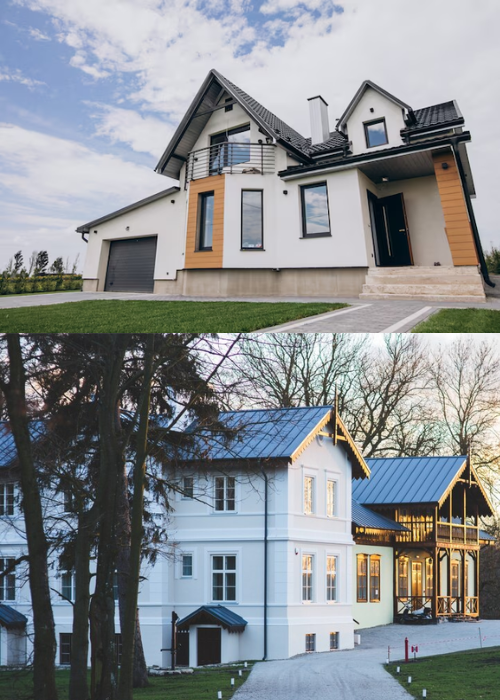Investing in New vs Established Properties

When it comes to property investment, one of the biggest decisions you’ll face is whether to invest in a new or established property. Both options have their advantages and challenges, and the right choice will depend on your goals, budget, and strategy.
As mortgage brokers specialising in property investment in Bondi Junction and Launceston, we’ve outlined the key factors to consider for each option to help you make the best decision for your portfolio.
Why Consider New Properties?
Newly built properties or off-the-plan investments are popular among investors for several reasons:
Benefits of New Properties
Higher Depreciation Benefits
Claim larger deductions for depreciation on the building and fixtures, reducing your taxable income.
Minimal Maintenance Costs
Enjoy lower repair and maintenance costs, especially in the first few years.
Modern layouts, appliances, and energy-efficient features make them attractive to tenants.
Challenges of New Properties
Higher Purchase Costs
New properties can come with a premium price, particularly in sought-after areas like Bondi Junction.
Limited Historical Data
It can be harder to predict future growth or rental demand without a track record.
Why Consider Established Properties?
Established properties are pre-owned and often located in well-developed neighbourhoods. They remain a strong choice for many investors.
Benefits of Established Properties
Predictable Growth and Returns
These properties often come with historical data on capital growth and rental yield.
Opportunity for Value-Adding Renovations
You can increase the property’s value through strategic upgrades.
Affordable Entry Costs
Established homes in areas like Launceston may offer lower prices compared to new builds.
Challenges of Established Properties
Higher Maintenance Costs
Older properties may require more frequent repairs and updates.
Lower Depreciation Benefits
Depreciation deductions are usually lower compared to new properties.
Key Factors to Help You Decide
When choosing between new and established properties, consider the following:
Your Investment Goals
- Looking for short-term tax savings? A new property might suit you better.Aiming for long-term capital growth?
- Established properties in high-demand suburbs may be the way to go.
Budget and Cash Flow
- Can you afford the premium price of a new property?
- Are you prepared for potential maintenance costs with an established property?
Target Tenant Market
- Young professionals and families often prefer modern, new properties.
- Established homes may appeal to tenants looking for character and charm.
FAQs About Investing in New vs Established Properties
Which option is better for first-time investors?
First-time investors often benefit from the lower upfront costs and predictable returns of established properties.
Are new properties more tax-efficient?
Yes, new properties typically offer higher depreciation benefits, which can reduce your taxable income.
How do renovation costs compare to the premium price of new properties?
Renovations can be a cost-effective way to increase the value of an established property, but it’s essential to budget carefully to avoid overspending.
Do new properties appreciate as much as established ones?
Appreciation depends on location and market conditions. Established properties in high-demand areas often show steady capital growth, while new properties may take longer to appreciate.
Can I use equity from one property to invest in another?
Yes, you can use equity from your existing property to invest in a new or established property. Learn more in our Refinancing for Property Investment Guide.
Get Expert Advice for Your Property Investment Journey
Choosing between a new or established property is a significant decision, and we’re here to help. Our experienced mortgage brokers will guide you in selecting the option that aligns with your financial goals and investment strategy.
